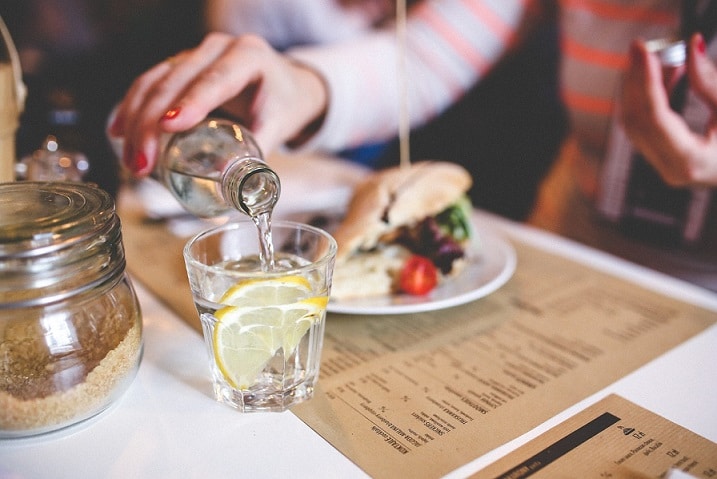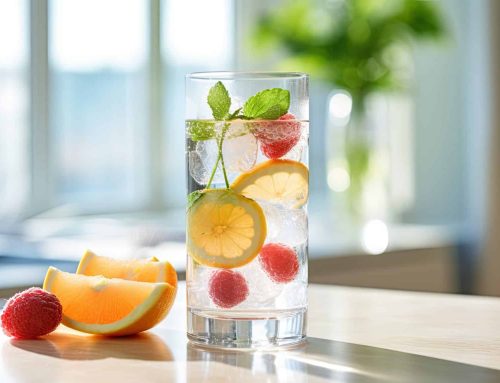Because the human body cannot survive without water and cannot operate effectively without water, and because we lose water throughout the day, we need to drink water on a consistent basis to prevent ourselves from being dehydrated.
The human body is composed of 70 percent water, and we need to maintain this equilibrium in order to ensure that:
- Our muscles can continue to grow and remain elastic; our brains can function normally; we maintain our plump, youthful looking skin; our kidneys can continue functioning and clear toxins out of our body; our joints remain lubricated and cushioned; and every cell in our body can grow, recreate, and do what it needs to do.
- When our blood continues to flow through our veins, it delivers all of the important oxygen and nutrients to every part of our body.
- When our blood continues to flow, our muscles can continue to grow
- Even if we feel bloated or are retaining water, we still need to make sure that we drink water on a consistent basis. Although it may sound strange, drinking water can really help you avoid retaining excess water in your body.
What exactly does “Water Retention” mean?
The condition known as water retention, which is also known as fluid retention, describes a situation in which there is an accumulation of fluid in the lymphatic system, capillaries, tissue spaces between cells, or in the tissues themselves. Water retention can also be referred to as fluid retention. The symptoms of water retention include bloating, a sense of fullness and discomfort all the time, and constant fullness. Water retention happens when the body does not eliminate sufficient amounts of water and waste materials.
Idiopathic oedema, also known as water retention or fluid retention, is a condition that occurs more frequently in women than in males and is known by the medical term idiopathic oedema. This condition typically strikes women right before they start their periods, and it has a tendency to become more severe as people become older.
Oedema may be a transient condition or it may be a symptom of a more serious underlying medical problem such as a condition affecting the thyroid, renal disease, heart disease, or lung disease.
Does Consuming Water Prevent You From Keeping Water in Your Body?
Drinking water does prevent you from retaining water, provided that the retention of water is not caused by an underlying ailment. This may sound strange, but drinking water does prevent water retention. If you have a lot of substances in your body that need to be dissolved, then you need to drink a lot of water. This is because your body will retain more water the more water it requires to perform this function, and the more water it needs, the more water it will retain.
If you drink more water, it will be easier for your body to digest anything it needs to digest, and it will also be easier for your body to rid itself of any toxins that it does not require. If you don’t drink enough water, your body won’t be able to filter your blood or make urine, which is how toxins get flushed out of your system. If you do not drink enough water on a regular basis, these waste deposits will remain in the bloodstream rather than being egested through urine or the colon; as a result, the liver will have a harder time doing its task of burning excess fat. If the body’s surplus fat is not burned, it will hold onto both the fat and the water that goes along with it if this is allowed to continue.
Constipation can be alleviated, as well as the formation of fluid retention, by drinking water on a regular basis and making it a priority to keep oneself completely hydrated at all times. In addition, increasing the frequency with which you consume water will appropriately hydrate your cells, which will enable your body to expel more water in the form of perspiration, urine, breath, and faeces.
Because it has a thermogenic effect on your body, drinking cold water is an excellent way to increase your metabolism. This is because it causes your body to produce more heat. The best way to ensure that you drink water on a regular basis and stay hydrated is to sip water throughout the day; drinking a litre of water at once is not a good idea because all you are doing is flooding your kidneys, and the majority of that will be passed as urine and not be retained by your body. Sipping water throughout the day is the best way to ensure that you drink water on a regular basis and stay hydrated.
If you continue to retain water despite drinking plenty of water, it may be an indication of a more serious condition that poses a greater risk to your health, such as high or low blood pressure, blood clots, cardiovascular disease, or liver disease. In this case, drinking water won’t help you get rid of the problem. In circumstances like these, it is strongly suggested that you go see a medical professional and explain to him or her that you have been experiencing extended bloating or discomfort as a result of water retention and that you have tried to remedy the problem by drinking more water.
Source:






